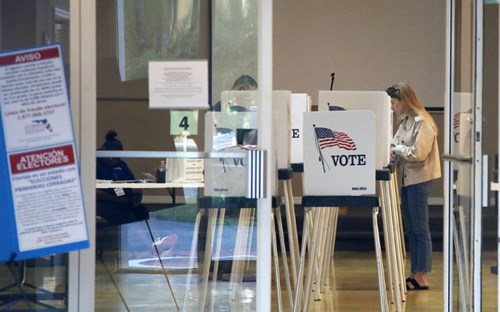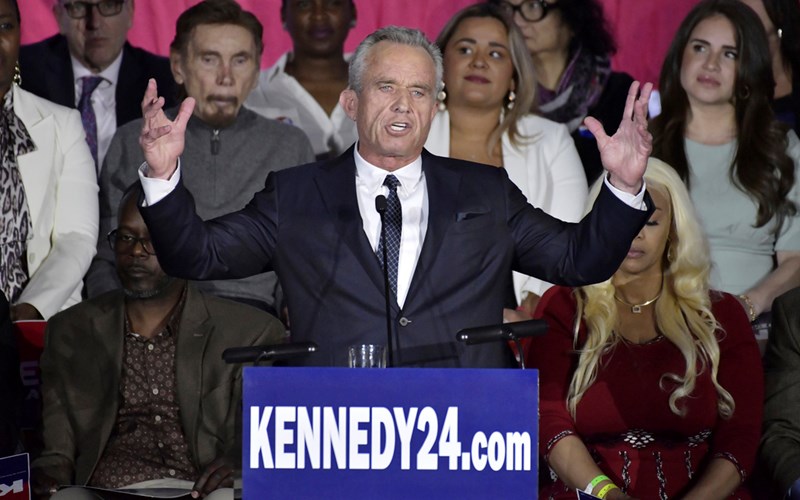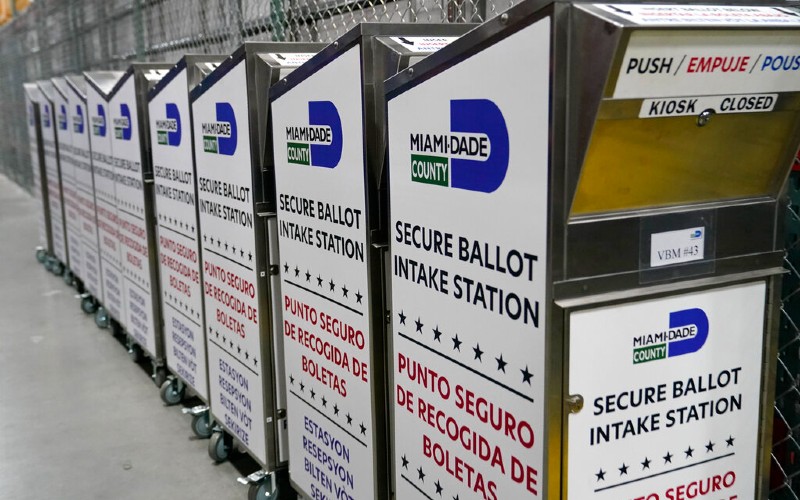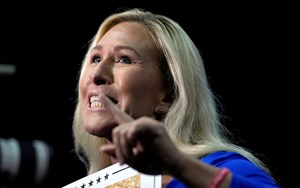For Americans turned off by the likelihood of a presidential rematch between a legally entangled, strong-willed septuagenarian representing Republicans; and an 81-year-old incumbent Democrat who doesn't guard the border and engages government resources against opponents – well, there's a choice … sort of.
Robert F. Kennedy Jr. (pictured above) is still hanging around the race.
RFK Jr. is a Democrat by lineage but is viewed by many as more conservative than the far-left progressives who seem to dominate the modern-day party with extreme social views on gender, abortion, crime and more. Indeed, Kennedy could offer the chance for many to vote their conscience … if he could only get on the ballot.
For an independent, that typically means petitioning each state individually to appear on their ballots.
Kennedy, frustrated by the national party in his effort to mount a primary challenge to Joe Biden, announced in October he was leaving the Democrats to run an independent campaign. But a party – any party – has its privileges, one being access to the ballot if you can win the party nomination.
So, Kennedy may be mulling a run as a Libertarian. Whether the Libertarian Party will have him or whether he will have them remains a clouded conversation. Until it's resolved, it does seem to set off alarm bells for Democrats.
"It's a very interesting dynamic and one that I think has shifted a good bit ever since RFK Jr. put his name – sort of – in the race," Tho Bishop, the content director for Mises Institute, said on American Family Radio Friday.
Bishop told show host Jenna Ellis that while there is a lot for Libertarians to like about Kennedy, the party has shifted in recent years; and a Kennedy ticket may not be a seamless transition for either side.

"I think there's a lot of natural overlap on some of the major issues in recent years, particularly when it comes to COVID," Bishop offered. "RFK has been great at utilizing alternative media, and Libertarians do not have mainstream media outlets. For a while he was seen as a very strong anti-war candidate particularly when it comes to the Russia-Ukraine situation."
Bishop said Kennedy has Libertarian allies, one of them David Stockman, a former U.S. House member from Michigan and the director of the Office of Management and Budget under President Ronald Reagan.
Stockman has close ties with former Congressman Ron Paul, who has been very outspoken in his support for Kennedy, Bishop noted.
Not the Libertarians of 2016
But the road to the Libertarian ticket won't likely be smooth for Kennedy if that's a path he desires, as some believe.
The party has changed from 2016 when it had two former Republican governors at the top of its presidential ticket: Gary Johnson of New Mexico and his running mate, Bill Weld of Massachusetts.
"The problem is that the Libertarian Party in recent years has had kind of a major shift in its leadership," Bishop said. "Gary Johnson was fairly Libertarian. Bill Weld was kind of more of a moderate and seemed to be kind of actively campaigning for Hillary Clinton by the end of that race in 2016. But that move was very pragmatic; there was a sellable candidate at the top, and then 'We'll figure out everything down ballot.'
"Now the LP is interested in finding sort of a dogmatic educator of Libertarian philosophy – and that's not RFK."
 The new-day Libertarians may have concerns with RFK on issues "like guns, free speech and at different points in his career on environmental policies," Bishop explained.
The new-day Libertarians may have concerns with RFK on issues "like guns, free speech and at different points in his career on environmental policies," Bishop explained.
Sometimes odd fits work.
Bishop used Donald Trump's successful GOP candidacy in 2016 as an example, calling him a "de facto independent" through that campaign.
"This puts RFK in a very difficult situation. I think he's counting on a Libertarian Party bailout, and I think that's going to be tough sledding," Bishop said.
Much of the polling focuses on a Joe Biden-Donald Trump rematch, but Kennedy far outshines each of them in terms of favorability, according to a Gallup survey released the second week of January.
Respondents gave Biden an unfavorable rating of 58%, Trump 57%. Kennedy and Nikki Haley were tied at 34%.
The question for Libertarian purists will likely be whether they can find a candidate to match the tenacity of their views.
Will the Libertarians or Kennedy be flexible?
For the ticket to work, either the purists or Kennedy – maybe both – would have to embrace some level of change. Which side can make itself comfortable with flexibility?
"This kind of gets to the core of the discussion of what is the place, what is the purpose of the Libertarian Party in modern America, particularly after Trump had a lot of anti-establishment populism and kind of captured that mold?" Bishop asked.
Much of the party's base wants to see it foremost as a platform for education for its beliefs, he said.
Whether there's a Kennedy shift to the Libertarian Party in the coming months may depend on who needs whom more, according to Bishop.
"The difficulty is that ever since Ross Perot scared the political establishment back in 1992, the rules in terms of getting on ballots and things like that have become so difficult that not having a party infrastructure that can go out and collect petitions and do all that dirty work … it's very difficult for an independent to take the stage unless you kind of run through a major party," Bishop said.







